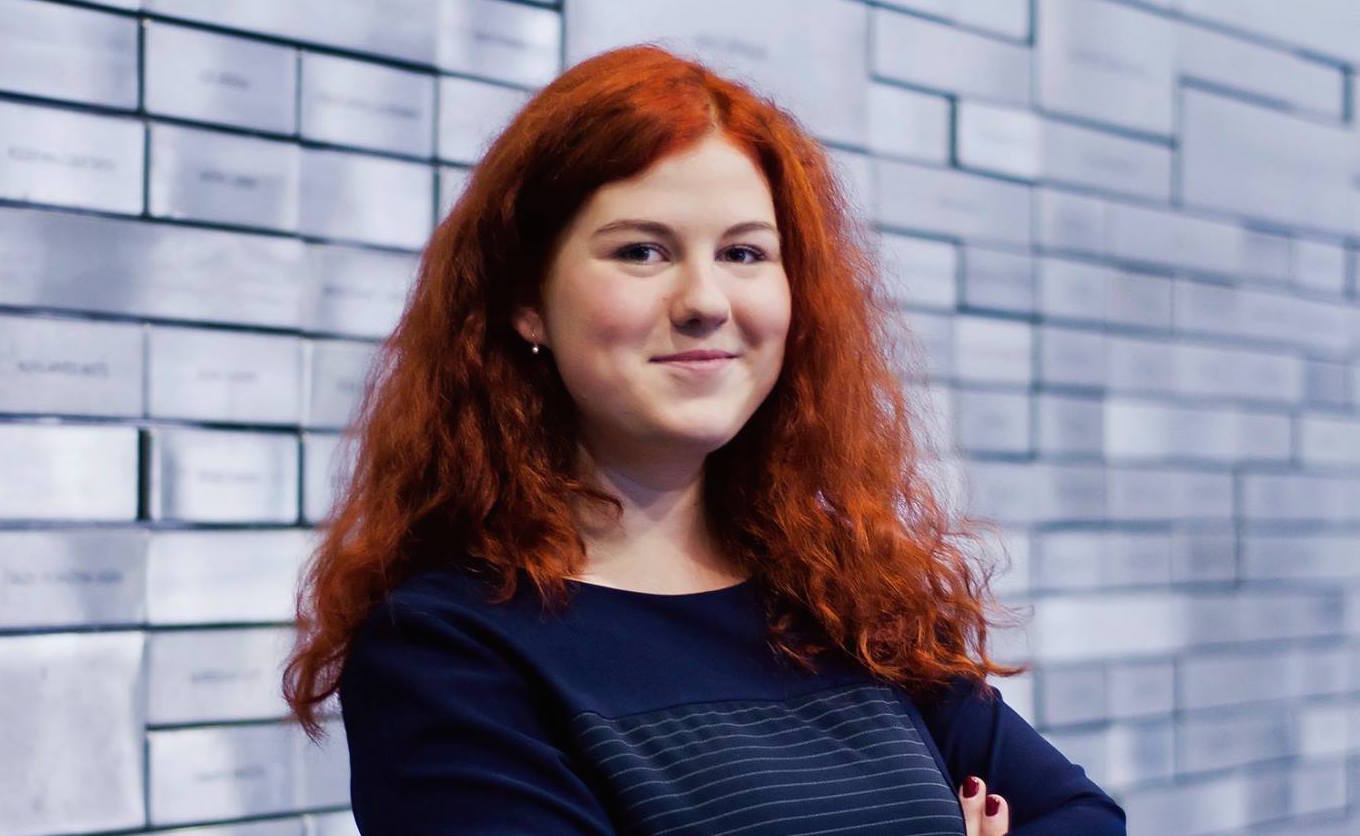[vc_row][vc_column][vc_column_text]Index on Censorship has recruited a new youth advisory board to sit until December 2017. The group is made up of young students, journalists and researchers from four continents.
Each month, board members meet online to discuss freedom of expression issues around the world and complete an assignment that grows from that discussion. For their first task the board were asked to write a short post about a pressing freedom of expression issue from their countries of residence.

Sean Eriksen – Brisbane, Australia
Eriksen is a 21-year-old Arts/Law student majoring in history and international relations
Notwithstanding the aphorism that ‘if free expression is to mean anything then it must protect unpopular opinions’, censorship is most tolerable at the fringes; and it is a mark of social progress that bigotry is considered so unpopular that many countries have tried to legislate it out of existence. But the suggestion that hate speech laws represent a positive cultural development does not endear them to those who believe free expression is inherently sacrosanct.
Section 18C(1)(a) of Australia’s federal Racial Discrimination Act 1975 prohibits acts that are reasonably likely to ‘offend, insult, humiliate or intimidate another person or group of people’ based on their race, colour, or national or ethnic origin. This allows administrative review and ultimately litigation, giving judges a wide capacity to make rulings on acceptable public discourse.
Defenders of the law claim that sufficient legislative exemptions protecting artists, commentators and academics exist elsewhere in the legislation, but in practice the standard for offence has not been particularly high. Most famously in Eatock v Bolt, articles by a conservative columnist were prohibited from further publication because he had suggested that many people were identifying as indigenous solely because it had become trendy to do so. This is perhaps a crass point to make, but not one that adults cannot reasonably be exposed to.
Though it may be meant well, the censorship of ugly or even disturbing speech is still censorship. Bad ideas do exist and the only harm is in hiding them.

Adam Rossi, youth advisory board, July-December 2017
Adam Rossi – Vancouver, Canada
Rossi is a Canadian student pursuing an MA in International Relations. He recently spent a year teaching English in Barcelona, Spain
Seven years after Catalonia’s government outlawed bullfighting in the autonomous region, its officials now find themselves back in the ring. They’ve been thrown in with a great bull, the Spanish government, which has been trying to skewer any Catalan public figure expressing pro-independence views as if they were matadors clad in red.
They have already suspended, fined, and barred from office the former Catalan prime minister, some of his cabinet members, and city councillors for organising a mock referendum back in 2014 and for continually speaking publicly about their belief in the need for real independence. Joan Coma, a leftist city councillor of the Catalan CUP party, now faces an eight-year prison sentence with his passport confiscated for saying, “To make an omelet, you must break some eggs,” in a discussion on independence. Spanish authorities claim that this was a call for political violence. Meanwhile, Spanish President Manuel Rajoy has even threatened to use force to stop the referendum. Not allowing the vote to happen would be undemocratic, essentially ignoring the voice of the people. In addition, these targeted shots at individual citizens such as Joan Coma only serve to drag Spain back to a dark past of civil oppression. They are even using the Francoist penal code to charge Coma. However, these acts only seem to be fuelling the hearts of Catalans, as street demonstrations and “si” vote flags begin to fly proudly outside people’s homes. The current Catalan president, Carles Puigdemont, says the vote will happen regardless, and that the Catalan government will be prepared for immediate separation if the result is a “yes.”

Huw Roberts, youth advisory board, July-December 2017
Huw Roberts – Hampshire, UK
Roberts graduated from Durham University in June 2017 with a BA in Politics. He has been granted a scholarship to study Public Administration at Shanghai Jiao Tong University
In May 2016 major social media firms, including Facebook and Twitter, signed up to a voluntary code of conduct aimed at combating illegal hate speech. This agreement, in partnership with the European Commission, required the signees to remove hate speech posted on their platform within a twenty-four hour period. Since this deal, the pressure placed on these companies to remove hate speech has been increasing, with proposals forwarded by European Union member states for binding legislation and punitive fines. Undoubtedly, the scope for the facilitation and proliferation of hate speech on these platforms requires a response, however, the current demands being placed on social media firms are fostering policies which often lack refinement and curtail legitimate free speech.
Leaked documents from earlier this year revealing Facebook’s hate speech policies typify the problems censorious practices can raise for free expression. The leading headline from these documents was that white men (as a group) were considered a protected category, yet, black children were not. As such, under Facebook guidelines attacks directed against white men were required to be removed, whilst those targeted at black children were permissible. This policy would not only seem discriminatory towards those most vulnerable within society, but has also proven detrimental to discourse. For example, campaigners from social justice groups such as Black Lives Matter have found their accounts blocked due to criticising structural privileges held by white men. Without an overhaul of the current guidelines in place and a more nuanced approach to censoring hate speech, those most marginalised within society risk having a vital outlet for raising debate and challenging inequalities shut down.

Madara Melnika, youth advisory board, July-December 2017
Madara Melnika – Riga, Latvia
Madara is a law student at University of Latvia. She has also studied in Salzburg and Berlin
At the beginning of July 2017 one of the most popular sports commentators in Latvia, Armands Puče, was dismissed from covering the Latvian Kontinental Hockey League club Dinamo Riga’s games. Although he was dismissed by the private media enterprise MTG TV Latvia, this case is noteworthy as the journalist claims that the decision on his dismissal was taken after the company received an ultimatum from the KHL bureau in Moscow, threatening to end the KHL’s broadcasting agreement with MTG TV unless Puče was removed.
His colleagues hinted that “just like in Soviet times”, all of the articles written by Puče in his parallel work as a journalist, in which he criticised the political ideology of the KHL and its impact on Dinamo Riga, had been translated into Russian and sent to the KHL main bureau in Moscow. It is important to stress that the mentioned articles were not connected to his hockey broadcasts.
After some time, the media enterprise claimed that its cooperation with Puče was ended due to plans for a new show concept, which would include also changing the anchor of the broadcast. Thus Puče, who had led the Hockey studio ever since the first season of the renewed hockey club Dinamo Riga, had to be let go.
Of course, the commentator is connected to his media employer and represents it. However, can the fate and work opportunities of a sports commentator absolutely depend on his ideology and activities done outside work – and will the teams suddenly play better, if their games are covered by loyal commentators?

Daniel Penev, youth advisory board, July-December 2017
Daniel Penev – Kyustendil, Bulgaria
Penev is a Bulgarian freelance journalist and a member of the Association of European Journalists
Valentin Todorov is a journalist from Novi Iskar, a town in western Bulgaria, who owns the local news website www.noviiskar.bg. He registered the website under this name in 2010. In June, Todorov learned that Daniela Raycheva, the mayor of the district since 2011, had challenged his right to use this domain. According to the general terms set out by Register BG Ltd., which administrates web domains in Bulgaria, the names of municipalities and regions are reserved for domains registered by the respective administrations. However, when the name is already in use, the parties wanting to use it must either choose another name or wait until it becomes vacant. Here comes the gist of the struggle: when he registered his website, Todorov secured a declaration in which Valentin Kotov, then mayor of Novi Iskar, explicitly states that he will not claim the name while it is active.
“There arises the question as to whether the public administration may, whenever it wishes, make claims in relation to something it has given away and which a citizen owns and has invested in for years,” the Association of European Journalists – Bulgaria wrote in July. “Trust is a media outlet’s greatest capital and it is inseparably connected to its name.”
Todorov suspects that the district mayor resorted to such actions because of the website’s more critical reporting on the various problems in the district. Notably, the mayor only decided to challenge his use of the domain six years after she took office. The administration also already has its own website, www.novi-iskar.bg. Todorov is optimistic about the outcome of the dispute, due by the end August, but if the Register BG commission rules in favour of the mayor, this will set worrying a precedent for all media outlets in Bulgaria.

Sophie Baggott, youth advisory board, July-December 2017
Sophie Baggott – London, UK
Baggott is a journalist focused on promoting human rights
Another resounding voice has blasted proposed changes to the regime protecting official information in the UK, which would deem anyone who communicates information seen ‘to prejudice the United Kingdom’s safety or interests’ or anyone who ‘obtains or gathers’ such information as having committed an offence, potentially resulting in a jail sentence of up to 14 years. To what extent will our government listen to the outcry?
“The proposals threatened would be ‘both retrograde and repressive’”, said the News Media Association (NMA) in a 20-page document released at the end of July. The NMA, which speaks for national and regional UK news media, has highlighted the industry’s concerns about consultative proposals for changes to the Official Secrets Acts and the Data Protection Act, as well as to other unauthorised disclosure offences.
The proposed reforms would lead to ‘damaging and dangerous inroads into press freedom by making whistle-blowers, journalists and media organisations prime targets for state surveillance and criminal prosecution’, the NMA warned. The association said the changes would ‘extend and then entrench official secrecy’, adding: ‘It would be conducive to official cover up. It would deter, prevent and punish investigation and disclosure of wrongdoing and matters of legitimate public interest’.
Investigative journalism could endure a ‘chilling effect’, said the NMA, from how the changes would make it easier for the government to prosecute anyone involved in obtaining, gathering and disclosing information, even if no damage were caused, and irrespective of the public interest. The proposed reforms might also precipitate a more widespread use of state surveillance powers against the media under the guise of suspected media involvement in offences. This would pose a threat to confidential sources and whistle-blowers, the NMA noted.
Is the government going to reconsider or restrict? Either way, the media industry will certainly have to remain on high alert for the foreseeable future.

Dan Bateyko, youth advisory board, July-December 2017
Dan Bateyko – Sarasota, Florida
Bateyko is an internet rights researcher from Sarasota, Florida. He is currently travelling on a Watson Fellowship, a one-year purposeful grant for global independent study
U.S. Twitter users blocked by their twit president might have a remedy. On July 11, the Knight First Amendment Institute filed a lawsuit arguing that US President Donald Trump violated the First Amendment rights of dissenting citizens when he blocked them from reading his tweets and contributing their own. Speaking to Index, Katie Fallow, senior staff attorney at Knight Institute, distilled the issue:
“The president may be using social media in a new way, but the First Amendment principles at stake are longstanding. When the government sets up a public forum, whether on Twitter in a town hall, it can’t exclude people just because it doesn’t like what they have to say.”
But whether Trump’s Twitter account can be considered a public forum is a point of contention. As the Knight Institute argues, Trump’s account has all the hallmarks of a public forum; the account tweets news on policy and provides a platform for public debate. However, in a recent statement, the justice department rejoined that Trump’s editorial control over who to follow and block on his private account is not a constitutional issue.
I chose to highlight this case in my first blog post as a member of Index’s youth advisory board because social media is an incredible tool for giving citizens a voice, granting them a platform to exchange views and petition their public officials. But where and how free speech rights extend online is still far from clear—as Lyrissa Lidksy, dean of Missouri’ School of Law, writes, determining whether comment removal on government-sponsored pages is constitutional “requires close examination of the U.S. Supreme Court’s public forum and government speech doctrines, both of which are lacking in coherence – to put it mildly.” With clarity, public officials once reticent to tackle the thorny issue of public accounts could feel comfortable with more online civic engagement. And by establishing further precedent, the Knight Institute’s defense of Twitter users will hopefully protect people’s hard-fought rights to free expression online.

Isabela Vrba Neves youth advisory board, July-December 2017
Isabela Vrba Neves – Stockholm, Sweden
Vrba Neves is a journalist and writer based in Sweden, and a graduate from Kingston University London
Sweden is known for having a good track record when it comes to freedom of expression, and is regarded as being an example in democracy and equality. However, the Nordic country has recently been faced by a wave of threats by far-right groups attacking journalists and media organisations. In February 2017 journalist Evelyn Schreiber received hundreds of death threats and threats of sexual violence after questioning a Facebook post by Peter Springare, a police officer who heavily criticised immigrants for violent crimes.
Springare received support by far-right groups who went after Schreiber with messages and phone calls. In a radio interview Schreiber explained how she believed the threats were “organised” as she would receive a large amount of messages every time a far-right group shared her article on Facebook.
She also described how at first the groups mostly criticised her article, but then progressed to personal vulgar and sexist attacks towards her. The newspaper, Nerikes Allehanda, which published her article, reported the threats to the police.
An issue that Schreiber brings up with these kinds of incidents is that journalists may self-censor for their own safety, which in turn can threaten freedom of expression. To combat this, the Swedish government announced in July 2017 an action plan which aims to strengthen the preventative work towards hate and threats against journalists, artists and elected representatives.
The Swedish Victim Support and the Swedish Crime Victim Compensation and Support Authority have been commissioned to develop material that will provide knowledge and support to those who have been under threat for participating in public conversations, in order to strengthen free speech and freedom of expression.[/vc_column_text][/vc_column][/vc_row][vc_row full_width=”stretch_row_content”][vc_column][three_column_post title=”More from the youth advisory board” category_id=”6514″][/vc_column][/vc_row]





